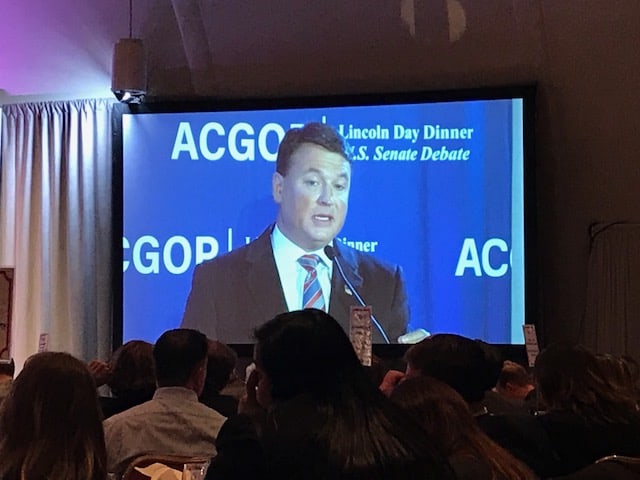INDIANAPOLIS (Indiana Capital Chronicle) – Indiana Attorney General Todd Rokita’s office has issued at least three civil investigative demands to medical providers as he continues to seek out information regarding gender-affirming care practices across the state.
Eskenazi Health, Indiana University Health and Mosaic Health and Healing Arts are now asking a judge to quash the demands, although court proceedings are under seal.
The move by Rokita’s office comes after just three medical providers responded to a March 6 request for details on care for transgender minors. He laid out more than a dozen questions, including requests for data on hormone treatments, surgeries and consent.
The letters were sent to a medical practice, a university, four hospitals and Planned Parenthood’s 11 Indiana locations. Eskenazi, IU Health and Planned Parenthood responded, though some with little detail. The others did not.
Spokespersons for IU Health and Eskenazi Health were unable to provide the Indiana Capital Chronicle with additional details because the matter is under seal.
Another spokesperson for the American Civil Liberties Union of Indiana, which is representing Mosaic in Goshen, also declined to give additional details, noting the private nature of the court proceedings.
What is a civil investigative demand?
Rokita’s office has previously said civil investigative demands “act as subpoenas.”
One provision in state law dictates that if the attorney general or the inspector general has reason to believe that a person has “documentary material or information relevant to an investigation involving a false claim,” that state officials can issue a civil investigative demand before initiating a formal civil proceeding.
According to the law, such demands can require a person or entity to:
- produce the documentary material for inspection and copying.
- answer an interrogatory in writing concerning the documentary material or information.
- give oral testimony concerning the documentary material or information.
In a separate section in the Indiana Code specific to the attorney general, the office is granted authority to demand documentary material and written interrogatories given under oath, as long as there’s reasonable cause to believe that a person has information that is relevant to an investigation of a statute enforced by the attorney general.
Last year, for example, Rokita’s office served six major U.S. banks with civil investigative demands, seeking documents related to the companies’ involvement with the United Nations’ Net-Zero Banking Alliance.
The Indiana Capital Chronicle has filed a public records request for the latest civil investigative demands sent to medical providers.
But in the past, the office has declined to provide the demands and even tried during the legislative session to insert language making the demands confidential.
That’s despite an opinion from the Indiana Public Access Counselor, who last year said the attorney general is required by Indiana law to disclose investigative demands. Answers to those demands, as well as the documentary materials obtained in response, are not required to be made public, though.
Seeking more details on transition-related care
Transition-related genital surgeries are considered a permanent method of sterilization, but hormone blockers — used for decades to delay puberty — are generally considered to be reversible. Hormone replacement therapies are somewhat reversible, depending on the length of time someone has used them.
Rokita’s office previously appeared unsatisfied with the results of its request earlier this year.
A spokesperson for the attorney general’s office told the Capital Chronicle last month that the responses didn’t answer the questions posed, and that “legal costs will undoubtedly increase as we implement more formal mechanisms to extract the information (medical providers) are apparently hiding.”
His initial letter asked clinics to document their gender-affirming care, including prescriptions and surgeries, and also asks about parental consent — something already required for a minor undergoing a surgery in Indiana — and the “revenue” generated by these treatments.
Rokita’s questions also went beyond medical care, including into whether providers suggest “the use of or provide access to mechanical devices such as “chest-binders” or “genital tucking underwear” to minors. He also asked how many such devices were distributed to children in each of the last three years.
During the 2023 legislative session, state lawmakers passed a controversial medical care ban for transgender minors that no longer allows parents to authorize gender-affirming care for their children, including puberty blockers, hormone replacement therapy or surgical interventions.
Indiana’s ban on a range of transition-related procedures for minors partially took effect in July while a lawsuit plays out in federal court.

